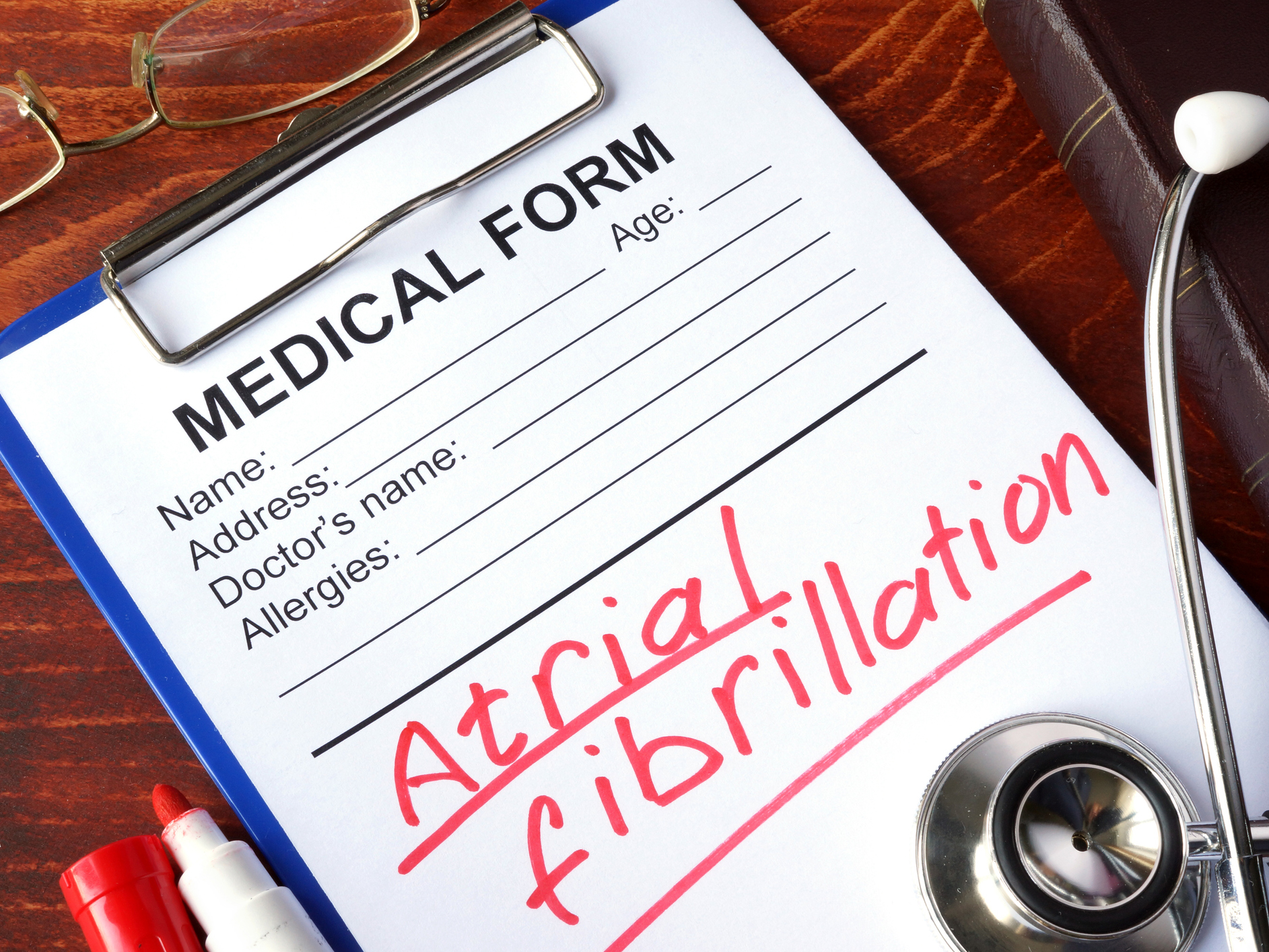Get Easy Health Digest™ in your inbox and don’t miss a thing when you subscribe today. Plus, get the free bonus report, Mother Nature’s Tips, Tricks and Remedies for Cholesterol, Blood Pressure & Blood Sugar as my way of saying welcome to the community!
The link between a nightcap and a future stroke

I remember being about eight years old and asking my grandpa why he always had red and purple spots on his hands and arms.
You can probably guess the cause — he was on blood thinners.
The reason he had to take these dangerous medications was that he lived with atrial fibrillation, a condition that caused his heart to beat irregularly and increased his risk of developing clots that could lead to stroke… or worse.
What’s interesting about atrial fibrillation, and something you may not know, is that lifestyle changes can often reduce the risk of developing it.
In fact, in a study of more than 114,500 people, researchers found that avoiding risk factors for the condition cut the likelihood of ending up with it by half! Factors they looked at included high blood pressure, excess weight, smoking, and diabetes.
But, there’s one more factor you need to account for…
Alcohol.
That’s because a new study has proven how dangerous a nightly drink could be to the rhythm of your heart…
Mild, moderate or excessive?
Excessive alcohol consumption is an established risk factor for atrial fibrillation (AF), but it’s been less clear what the effects of moderate and mild consumption are on the condition.
Observational studies have suggested that even moderate regular alcohol consumption may increase the risk of atrial fibrillation. And, a meta-analysis of seven studies involving nearly 860,000 patients and approximately 12,500 individuals with the condition demonstrated an eight percent increase in the incident of atrial fibrillation for each additional daily standard drink.
Despite this association, detailed human studies showing the nature of alcohol-related changes in the heart have been lacking.
That’s no longer an issue thank to Australian researchers whose new study is published in HeartRhythm, the official journal of the Heart Rhythm Society and the Cardiac Electrophysiology Society.
They set out to determine the impact of different degrees of alcohol consumption on atrial remodeling using high-density heart mapping. The investigators performed detailed invasive testing on the atria of 75 patients with atrial fibrillation, 25 in each of three categories: lifelong non-drinkers, mild drinkers, and moderate drinkers.
Patients consuming two to seven drinks per week were considered mild drinkers, while those consuming eight to 21 drinks per week (an average of 14 drinks per week) were defined as moderate drinkers.
The investigators found that individuals who consumed moderate amounts of alcohol (average 14 drinks per week) had more electrical evidence of scarring and impairments in electrical signaling than non-drinkers and light drinkers.
In other words, even moderate drinking leads to atrial fibrillation.
As lead investigator Professor Peter Kistler, MBBS, Ph.D., FHRS, from the Heart Centre, Alfred Hospital, Melbourne, Australia said, “Regular moderate alcohol consumption, but not mild consumption, is an important modifiable risk factor for AF (atrial fibrillation) associated with lower atrial voltage and conduction slowing. These electrical and structural changes may explain the propensity to AF in regular drinkers.”
Avoiding atrial fibrillation
So, if you want to avoid atrial fibrillation, managing how much alcohol you drink as well as the other risk factors we talked about is key.
As my colleague, Jenny Smiechowski, reported, adding nuts to your diet could also lower your risk for the condition by as much as 19 percent.
And, a study by Swedish researchers found that practicing yoga could also have big benefits.
Whether or not you end up with atrial fibrillation, forced to take blood thinners just to lower your risk of stroke, is largely in your hands. Take steps now to lower your risk, avoid the condition and keep your heart healthy.
Editor’s note: Are you feeling unusually tired? You may think this is normal aging, but the problem could be your master hormone. When it’s not working, your risk of age-related diseases skyrockets. To reset what many call “the trigger for all disease” and live better, longer, click here to discover The Insulin Factor: How to Repair Your Body’s Master Controller and Conquer Chronic Disease!
Sources:
- What is Atrial Fibrillation (AFib or AF)? — American Heart Association
- Prevention is key in avoiding atrial fibrillation — Easy Health Options®
- How much is too much? Even moderate alcohol consumption is a risk factor for atrial fibrillation — EurekAlert!













